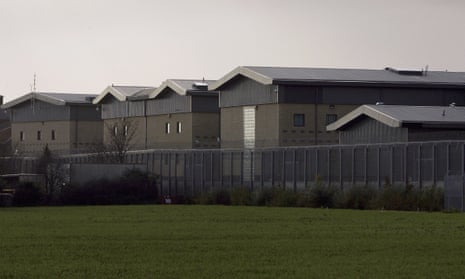Home Office ministers have overruled their own officials who recommended an increase to £1 per hour rates paid to immigration detainees to do menial jobs.
The information has emerged as part of a legal challenge against the Home Office brought by detainees protesting about being paid what they called a “slave labour” rate for jobs such as cleaning toilets or working in kitchens.
The work is voluntary and detainees do not have to pay for food or accommodation while they are held in detention centres which, like prisons, are exempt from minimum wage legislation.
The Home Office says the menial work is provided on a voluntary basis to meet “recreational and intellectual” needs and provide “relief from boredom”. However, without the detainees to do the work, the Home Office would have to pay more than seven times as muchto external workers.
Lawyers for the detainees lodged initial legal proceedings known as a pre-action protocol last year, but the Home Office promised to conduct an internal review of the extremely low pay rates, with the legal action being paused until this had been completed.
Although Home Office officials and detention centre contractors have expressed support for a pay rise, ministers decided the recommended increase from £1 to £1.15 was not necessary. The rate has remained the same since 2008. The legal action is now continuing and will be heard in the high court in December.
According to the legal documents seen by the Guardian, the Home Office’s review solicited views from a variety of people, including detainees and centre managers. One centre manager said: “When it comes to asking a detainee to put his hand down a toilet to clean or asked to clean the body fat buildup in the showers for £1 an hour, then we are often met with the response that you can stuff your job, which is why we have a high turnover for shower cleaners and room cleaners.”
Previously, Home Office officials said £1 an hour “seems high”.
In a document known as a detention services order, Home Office officials said: “Whilst £1 per hour seems high, I am reluctantly recommending that we accept this as the basic pay rate.”
The official added that reducing the rate to the preferred level of 75p would be “too risky”. “We would be heavily criticised by the likes of NGOs, IMBs (independent monitoring boards) and HMIP [the prisons inspectorate],” they said.
The Home Office standardised work payments in 2008, which had previously varied between detention centres. In 2016-17, detainees carried out 887,073 hours of work, for which they were paid £887,565. A very small percentage of them – 0.27% – were paid an enhanced rate of £1.25 per hour for special projects.
The detainees’ lawyers say the home secretary is acting unlawfully under detention centre rules and the internal pay review conducted by the Home Office is irrational and is in breach of equality legislation.
Toufique Hossain from Duncan Lewis solicitors, who is bringing the legal action, said: “For several years, the Home Office has exploited immigrants that the government has detained. Cleaner, barber, kitchen assistant, interpreter, librarian … these are just a few of the jobs, essential to the day-to-day running of detention centres, which are carried out by detainees.
“Indefensibly, the Home Office has set a maximum pay cap for such work at £1 per hour. After we threatened legal action, the Home Office finally reviewed this policy at ministerial level, but callously chose to maintain the cap. We now seek judicial scrutiny of this immoral and obscene practice.”
The Home Office said: “The longstanding practice of offering paid activities to people in immigration detention centres has been praised by Her Majesty’s Inspectorate of Prisons as it helps to keep them occupied whilst their removal is being arranged.
“Whether or not they wish to participate is entirely up to the detainees themselves, but the numbers of detainees volunteering for paid activities across the detention estate is evidence that the jobs are popular. This practice is not a substitute for the work of trained staff.”
